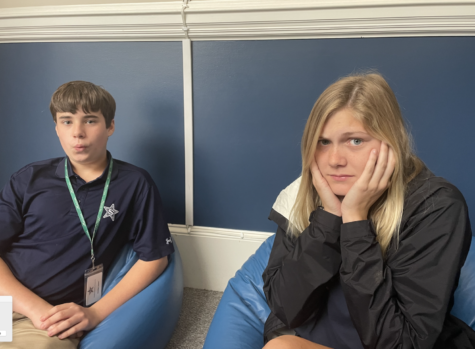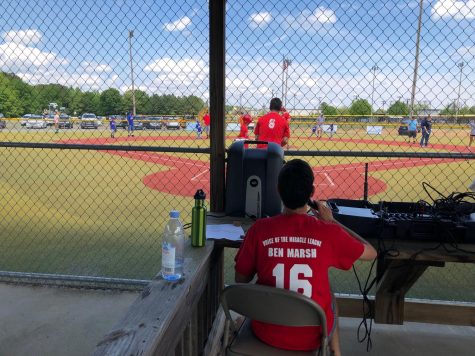DEEP SLEEP
Schools should have later starting time
Every day, I witness groggy and sleep-deprived peers struggling to stay awake in class. Although eight hours of sleep every night is recommended for teenagers, any Stratford student will tell you that’s not a feasible reality.

The school day begins at 8:30 a.m., which is an hour later than most high schools. However, having an even later start time of 10 a.m. not only would benefit students but also teachers.
Research has proven that more sleep leads to more alert students, improved mental health, higher grades and a host of other benefits.
According to the BBC, sleeping expert Dr. Paul Kelley and University of Oxford sleep researcher Professor Russell Foster said “school days should start at 10:00 and university at 11:00, to better match the circadian rhythms of adolescents and young adults.”
They argue that “there are no negative outcomes for starting [the school day] later, no positive outcomes for moving earlier.”
Students tend to be more alert in the later hours of the morning. According to CNN, studies have shown that in schools that start at 7:30 a.m. or earlier, students’ melatonin levels are still sending sleep signals.
It would be unreasonable to expect students to learn anything if they are still asleep. A later start would give students’ minds more time to wake up and prep for the day.
A common counterargument states that students should just go to bed earlier, but that is more difficult than it might appear. Stratford students start their school day at around 8:30 a.m. and end at 3:30 p.m., only to spend another two hours in extracurricular activities.
In addition, students usually get home at around 7 p.m. By the time they finish dinner and freshen up, it may already be 8 p.m. … and they still have several hours of homework to do.
If a later start time was implemented, students should still be released at the same time at the end of the day. Advocates of later start times argue that many students who have to wake up early for school do not get enough sleep, and that beginning the school day at a later time would boost their achievement.
A number of factors and scenarios have to be taken into account when addressing this issue. Students today are faced with more psychological trials and have more to balance than any generation before them.
In fact, many of the threats facing American youth, including depression, diabetes, obesity and drowsy driving, could be resolved, or at least reduced, by implementing a later school start time.
Physical Health
According to a study done by the University of Maryland Medical Center, lack of sleep in students can lead to an increased likelihood of being diagnosed with diabetes, since a lack of sleep can build a higher insulin resistance.
In addition, teens who get less sleep are more likely to eat fatty foods, which might be a key factor in the obesity epidemic among our youth.
Many other factors in present-day America have led to our staggering numbers of diabetic cases. However, increasing teenagers’ sleep should be one of the easiest things to change.
Mental Health and Morale
Due to the stresses of performing in school and trying to fit in, high school students have always had a rough time keeping their morale up.
Teens today have an online life outside of school to worry about, and there is no shortage of factors that have contributed to the staggering numbers of student-depression cases since the internet boom.
On top of all of the psychological strains facing teens today, teens who go to sleep after midnight and wake up before 7 a.m. are 24 percent more likely to suffer from depression than those who get at least eight hours of sleep.
Look at all the things students have to juggle these days: maintaining good grades, trying to fit in with social crowds, keeping up on social media and extracurricular activities.
Let’s face it: students today have a lot more on their plates than their predecessors 20 or 30 years ago. It’s no wonder that parents and school officials are out of touch with the issues facing today’s youth.
Small factors like pushing back when the school day starts can make the weight of the other stresses of a modern student’s life seem much lighter.
Whether students use the extra hour for sleep, preparing for school, sitting down to a nutritious breakfast or simply clearing the mind, a later start time would make a major difference in the physical and mental health of students at Stratford and at other high schools across the country.
Deep Patel is a senior in his second year on the Gazebo staff.








